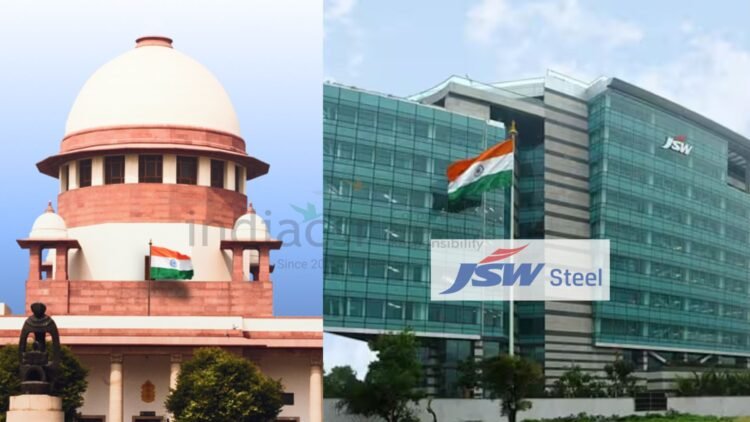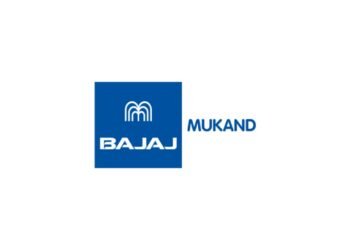NEW DELHI (India CSR): In a landmark ruling on May 2, 2025, the Supreme Court of India declared JSW Steel’s Rs 19,700 crore resolution plan for Bhushan Power & Steel Limited (BPSL) “illegal” and ordered the company’s liquidation. The decision, delivered by a two-judge bench comprising Justices Bela M Trivedi and Satish Chandra Sharma, cited multiple violations of the Insolvency and Bankruptcy Code (IBC). The ruling marks a significant setback for JSW Steel, one of India’s largest steelmakers, and raises critical questions about the credibility of the country’s insolvency resolution process.
The court’s decision came after years of legal battles, including challenges from operational creditors and the Enforcement Directorate (ED). Following the verdict, JSW Steel’s shares plummeted, closing 5.46% lower at Rs 972.15 on the Bombay Stock Exchange (BSE). The company has stated that it is awaiting a formal copy of the order to assess its implications and determine its next steps.
This article explores the background of the case, the reasons behind the Supreme Court’s ruling, the financial and operational impact on JSW Steel, and the broader implications for India’s insolvency framework.
Table: JSW Steel – BPSL Supreme Court Ruling
| Category | Details |
|---|---|
| Date of Ruling | May 2, 2025 |
| Court | Supreme Court of India |
| Bench | Justices Bela M Trivedi and Satish Chandra Sharma |
| Ruling Summary | Declared JSW Steel’s Rs 19,700 crore resolution plan for BPSL illegal; ordered liquidation |
| Key Violations Cited | – Violation of IBC Section 30(2) – Use of OCDs instead of equity – Delay in implementation – Misrepresentation by JSW Steel – Failure of CoC and resolution professional |
| JSW Steel’s Investment | Rs 19,700 crore (Rs 19,350 crore to financial creditors) |
| BPSL’s Debt (2017) | Over Rs 47,000 crore to financial creditors; Rs 780+ crore to operational creditors |
| Initial NCLT Approval | September 2019 |
| NCLAT Affirmation | February 2020 |
| Final Acquisition Date | March 2021 (JSW Steel acquired 49%, later raised to 83.3% in October 2021) |
| SC Action on ED | December 2024 – Directed ED to transfer attached BPSL assets worth ₹4,025.23 crore to JSW Steel |
| Share Market Impact | JSW Steel shares fell 5.46% to ₹972.15 on BSE; market cap dropped to ₹2.37 lakh crore |
| Operational Impact | Loss of 2.75 mtpa capacity in Odisha; jeopardizes plan to expand to 5 mtpa by FY27 |
| EBITDA Impact Estimate | Rs 4,000–4,500 crore shortfall in FY25 (13% of JSW capacity, 10–11% EBITDA loss) |
| Creditor Impact | Potential lower recoveries than 41.03% offered under JSW plan; PSU banks like SBI & PNB affected |
| Investor Sentiment | Negative; concerns over IBC’s credibility and future investment risks |
| Broader Implications | – Questions over insolvency process integrity – Need for stricter CoC and RP accountability |
| JSW Steel’s Response | Awaiting formal order to assess next steps; reviewing with legal advisors |
| Stakeholder Silence | CoC and operational creditors largely silent post-ruling; ED’s role now moot |
Background of the Bhushan Power & Steel Case
Bhushan Power & Steel Limited (BPSL) was one of the first 12 companies flagged by the Reserve Bank of India (RBI) for insolvency proceedings under the IBC in 2017. At the time, BPSL owed over Rs 47,000 crore to its financial creditors, including major public sector banks like State Bank of India (SBI) and Punjab National Bank (PNB), and over Rs 780 crore to operational creditors.
In September 2019, the National Company Law Tribunal (NCLT) approved JSW Steel’s Rs 19,700 crore resolution plan, which included Rs 19,350 crore in payments to financial creditors, representing a 41.03% recovery on admitted claims of Rs 47,157.99 crore. The acquisition was finalized in March 2021, with JSW Steel initially acquiring a 49% stake in BPSL, later increasing it to 83.3% by October 2021. The deal added 2.75 million tonnes per annum (mtpa) of steelmaking capacity to JSW Steel’s portfolio in Odisha, a strategic move to expand its presence in eastern India.
However, the resolution process faced significant hurdles. In October 2019, the Enforcement Directorate (ED) attached BPSL assets worth Rs 4,025.23 crore, alleging violations by the company’s former promoters under the Prevention of Money Laundering Act (PMLA). JSW Steel challenged the attachment, and in February 2020, the National Company Law Appellate Tribunal (NCLAT) ruled in its favor, stating that the ED’s action lacked jurisdiction. In December 2024, the Supreme Court directed the ED to transfer the attached assets to JSW Steel, seemingly clearing the path for the acquisition. However, the May 2025 ruling has now overturned these developments.
Timeline of Key Events
The BPSL insolvency case has been a protracted saga marked by legal and financial complexities. Below is a detailed timeline of the key events:
| Date | Event |
|---|---|
| July 2017 | BPSL admitted for Corporate Insolvency Resolution Process (CIRP) under IBC. |
| September 2019 | NCLT approves JSW Steel’s Rs 19,700 crore resolution plan for BPSL. |
| October 2019 | ED attaches BPSL assets worth Rs 4,025.23 crore over alleged PMLA violations. |
| February 2020 | NCLAT upholds NCLT’s decision, allowing JSW Steel to acquire BPSL. |
| March 2021 | JSW Steel implements the resolution plan, paying Rs 19,350 crore to creditors. |
| December 2024 | Supreme Court directs ED to transfer attached assets to JSW Steel. |
| May 2, 2025 | Supreme Court scraps JSW Steel’s resolution plan, orders BPSL liquidation. |
Supreme Court’s Ruling: Why Was the Deal Scrapped?
The Supreme Court’s decision to scrap JSW Steel’s resolution plan was based on several critical findings, as outlined below:
1. Violation of IBC Provisions
The court ruled that JSW Steel’s resolution plan did not comply with Section 30(2) of the IBC, which mandates that resolution plans must adhere to the code’s provisions. Specifically, JSW Steel used a mix of equity and optionally convertible debentures (OCDs) to fund the acquisition, contravening IBC regulations that require equity alone. This violation was deemed a “flagrant breach” of the IBC and Corporate Insolvency Resolution Process (CIRP) regulations.
2. Wilful Delay in Implementation
JSW Steel failed to implement the resolution plan within the stipulated timeline, wilfully contravening its terms for two years. The court noted that this delay frustrated the objectives of the IBC, which aims to ensure timely resolution of distressed companies, and vitiated the entire insolvency process for BPSL.
3. Committee of Creditors’ (CoC) Failure
The CoC, comprising major lenders such as SBI and PNB, was criticized for failing to exercise “commercial wisdom” in approving JSW Steel’s plan. The court found that the CoC’s approval was in “absolute contravention” of IBC provisions and that it failed to protect creditors’ interests. The CoC also took contradictory stands before the Supreme Court and accepted payments from JSW Steel without objection, further undermining its role.
4. Resolution Professional’s Negligence
The resolution professional overseeing the BPSL insolvency process was found to have “utterly failed” to discharge statutory duties under the IBC and CIRP regulations. This lack of oversight contributed to the procedural flaws in the resolution process.
5. Misrepresentation by JSW Steel
The court observed that JSW Steel secured the winning bid by misrepresenting facts before the CoC. Additionally, the company did not act on the plan for two years, despite there being no legal impediments, further justifying the court’s decision to declare the plan illegal.
The Supreme Court also set aside the NCLT’s order of September 5, 2019, and the NCLAT’s order of February 17, 2020, describing them as “perverse” and “coram non judice” (lacking jurisdiction). The court ordered the liquidation of BPSL, effectively nullifying JSW Steel’s acquisition.
JSW Steel’s Response
JSW Steel, led by Chairman Sajjan Jindal, issued a cautious statement following the Supreme Court’s ruling on May 2, 2025:
“We learnt that the Hon’ble Supreme Court pronounced Judgment today, i.e., 02-05-2025, rejecting the Resolution plan approved by NCLAT on certain grounds. We are yet to receive the formal copy of the Order to understand the grounds for rejection in detail and its implications. Once we receive the Order and are able to review the same along with our legal advisors, we will decide on our further course of action. We shall keep the exchange informed of further developments as required under applicable laws.”
The company’s shares fell sharply after the verdict, closing at Rs 972.15 on the BSE, down 5.46%. Some reports indicated intraday declines of up to 7%, reflecting investor concerns about the financial and operational fallout.
Financial and Operational Impact on JSW Steel
The Supreme Court’s ruling has significant implications for JSW Steel, both financially and operationally:
Financial Losses
JSW Steel may be forced to write off its entire Rs 19,700 crore investment in BPSL, a substantial blow to its balance sheet. The resolution plan included Rs 19,350 crore in payments to financial creditors, representing a 41.03% recovery on admitted claims of Rs 47,157.99 crore. The liquidation of BPSL could result in lower recoveries for creditors, further complicating the financial picture.
Operational Setbacks
BPSL accounts for over 13% of JSW Steel’s production capacity and 10-11% of its EBITDA for FY25-27, according to analyst estimates from CLSA. JSW Steel had invested Rs 3,500-4,500 crore post-acquisition to expand BPSL’s capacity from 2.75 mtpa to 4.5 mtpa, with plans to increase it to 5 mtpa by September 2027. The liquidation order jeopardizes these expansion plans, potentially leading to a Rs 4,000-4,500 crore EBITDA shortfall in FY25.
Market Reaction
The ruling triggered a sharp decline in JSW Steel’s share price, with the company’s market capitalization dropping to Rs 2.37 lakh crore on May 2, 2025. Analysts from Morgan Stanley described the verdict as “materially negative,” citing BPSL’s critical role in JSW Steel’s growth strategy.
Broader Implications for India’s Insolvency Framework
The Supreme Court’s decision has sparked a debate about the reliability and transparency of India’s insolvency resolution process under the IBC. Key implications include:
Credibility of the IBC
The ruling highlights significant flaws in the BPSL resolution process, including lapses by the CoC and the resolution professional. Legal experts have described the verdict as a “blow to the insolvency process,” emphasizing the need for stricter oversight and adherence to IBC norms. The case underscores the importance of ensuring that resolution plans are legally sound and implemented promptly to achieve the IBC’s objectives.
Investor Confidence
The cancellation of a high-profile acquisition like BPSL’s raises concerns about the risks associated with insolvency resolutions. Investors may become more cautious about participating in future acquisitions of distressed assets, fearing legal challenges or procedural uncertainties. This could slow down the resolution of other stressed companies under the IBC.
Impact on Creditors
The liquidation of BPSL is likely to result in lower recoveries for creditors compared to JSW Steel’s resolution plan. Major banks, including SBI, PNB, Bank of Baroda, Indian Bank, Canara Bank, and Indian Overseas Bank, were among BPSL’s lenders. The unwinding of the insolvency transaction could hit these banks’ balance sheets, particularly as they had already accepted partial recoveries under the resolution plan.
Stakeholder Reactions
While JSW Steel has issued a formal statement, reactions from other stakeholders have been limited:
- Committee of Creditors (CoC): The CoC, which includes major lenders like SBI and PNB, has not publicly commented on the ruling. However, the Supreme Court’s judgment criticized the CoC for failing to protect creditors’ interests and for approving a flawed resolution plan, suggesting that internal reviews may be underway.
- Enforcement Directorate (ED): The ED’s role in the case concluded in December 2024, when it complied with the Supreme Court’s directive to transfer BPSL’s attached assets to JSW Steel. The liquidation order supersedes all prior attachments, rendering the ED’s earlier actions moot.
- Operational Creditors: The ruling came in response to appeals filed by operational creditors, including Kalyani Transco, Sanjay Singal (former BPSL promoter), and others like Jaldhi Overseas and CJ Darcl Logistics. These creditors challenged the resolution plan’s approval, arguing that it violated IBC norms.
You Learn
The Supreme Court’s decision to scrap JSW Steel’s Rs 19,700 crore resolution plan for Bhushan Power & Steel Limited and order its liquidation is a pivotal moment in India’s corporate insolvency landscape. The ruling underscores the importance of strict compliance with the Insolvency and Bankruptcy Code and highlights the risks of procedural lapses in high-stakes resolutions.
For JSW Steel, the verdict represents a significant financial and operational setback, potentially erasing years of investment and disrupting its expansion plans in eastern India. The company’s next steps will depend on its legal review of the court’s order, but the immediate impact on its share price and market confidence is undeniable.
For the broader economy, the case serves as a cautionary tale about the complexities of insolvency resolutions. It calls for greater accountability from resolution professionals and creditors’ committees to ensure that the IBC achieves its goal of maximizing value for stakeholders. As India continues to refine its insolvency framework, the BPSL case will likely serve as a benchmark for future reforms.
(India CSR)






















